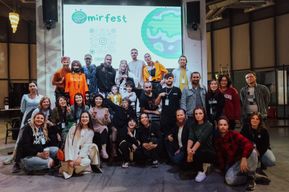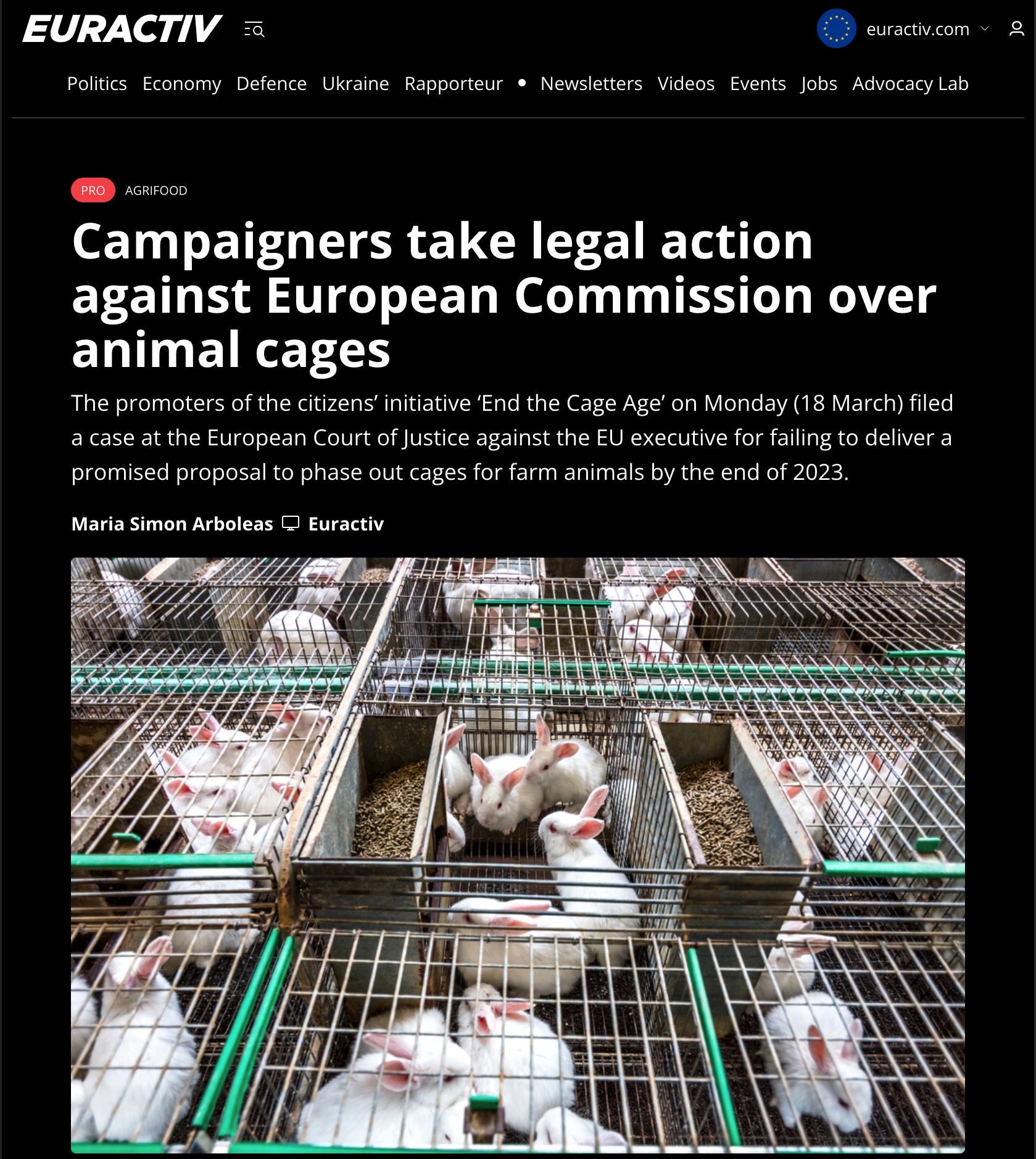
Movement seeds: Supporting early-stage local animal advocacy in Central Asia and the Caucasus
May 21, 2025
November 12, 2025
I have a tough task – I need to grab your attention to tell you about an issue I dedicated my life to. But it involves one of the most yawn-inducing topics imaginable. It’s – you guessed it – EU legislation. I know the whole internet is fighting for your attention. But this is hugely important, so I ask you to give me a few minutes. Until the 12th December, the EU is conducting a public consultation on animal welfare. Here’s why you should take part in it.
Animals raised for food in the European Union are mostly kept in horrendous artificial conditions with mechanized equipment and minimal care – the practice commonly known as factory farming. To quickly grasp what’s wrong with it, just take a look at this photo from a typical European farm that we investigated at Anima International:

This looks very different from how we treated these animals just a few decades ago. Forget idyllic pictures of happy, freely roaming animals. It’s not where our food comes from anymore.
Let’s look at eggs. Under EU-approved conditions for egg-laying hens:
Every time we go to such places, we see collapsed animals, rotting bodies, improper handling, open wounds, and parasites crawling on distressed animals.
If you asked me to describe what hell looks like, I would immediately direct you to footage from a factory farm. Most people don’t want this to happen. So why does it continue unchanged?
There are many causes. But the main, perverse reason is that we, as a society, are ignored. People want farmed animals to have good lives. They constantly express this to their political representatives. They try to make better choices at the supermarket, navigating misleading welfare labels. Yet, agricultural and trade interests override their will again and again.
The EU's own research shows that people overwhelmingly oppose the current treatment of farmed animals – 84% of Europeans believe farmed animals deserve better protection. In fact, fewer people (74%) agreed with the same statement for companion animals, which indicates that the public recognizes farmed animal welfare as the more neglected issue. I’d argue that in today’s world that seems overly polarized, it’s hard to find an issue with more support.
This support is clearly reflected in the citizens' actions. The European Union offers democratic tools that allow its members to express their will, like The European Citizens' Initiative (ECI). By 2020, 1.4 million Europeans signed the 'End the Cage Age' initiative to ban the use of cages in farming. In the European Parliament debate and vote that followed, a huge majority of MEPs called on the Commission to propose legislation banning cages across the EU.
The Commission responded by opening a 2022 consultation on cage bans, animal transport, chick culling, mutilations, and import standards. They received 59,000 responses – an unprecedented show of public support. Then... very little happened. Since 2021, the Commission has proposed legislation on just one farmed animal issue: live animal transport. Starting in late 2023, officials quietly shelved almost all other reforms.

When the EU administration blatantly ignores citizens, it erodes trust in EU institutions and undermines the foundation of The European Union itself. People become disillusioned. But it’s not hopeless. We will not stop just because we have been ignored.
Recently, the Commission opened another consultation – this time with a more narrow scope, concentrating on questions about cage confinement, the widespread killing of day-old male chicks, and requiring imports to meet EU welfare standards. They're asking for public input until December 12th.
We want the European Union to stand up to its values. It must:
Strong participation in this consultation would create documented evidence that makes it politically harder for the Commission to backtrack or delay reforms again. High engagement demonstrates that animal welfare remains a priority for voters. Silence, on the other hand, would signal lack of public interest, making it easier to deprioritize these reforms entirely.
The consultation is a simple online questionnaire, but the quality of the answers is important. That’s why we prepared a guide that will help you submit your answer. We made it easy to participate, even if you've never engaged with an EU consultation before.
If you only have 1 minute today:
You don't need to be an EU citizen – the Commission wants to hear from people everywhere. The EU regulations may have an effect beyond its borders, and the import restrictions, if implemented, would prevent outsourcing animal suffering to other countries.
You also don't need to be an expert – they're asking for your personal opinion and values. That being said, the consultation is also open to researchers, NGOs, and institutions, whose voice would carry even more weight. If you’re part of an advocacy group, sign up here to get access to a Slack space and a toolkit designed to help you mobilize your supporters.
While filling out an online form may seem insignificant – many mock this kind of action as "clicktivism" – public consultations remain one of the few official tools we have as individuals to influence legislation affecting millions of animals. The minimal time and zero cost required is precisely what makes this action potentially cost-effective. Yes, the probability that your single submission will lead to change is low. Yes, it’s still factory farming. But it makes a difference to animals themselves. According to scientific research, moving a single hen from a cage to an aviary would spare her 7,233 hours of pain on average. Right now, there are 149.2 million hens in cages in the EU. This clearly shows that the potential gains for animals are enormous. When put that way, filling out a quick form seems like the least we can do.
Let's make ourselves hard to ignore.
Jakub Stencel has been involved in the animal advocacy movement for over 10 years. Currently holds the position of Director of Development in Polish animal protection organization – Otwarte Klatki, and Executive Director in Anima International, which he co-founded. On a day-to-day basis, Jakub is responsible for strategic planning, data-driven development, and organizational growth.
